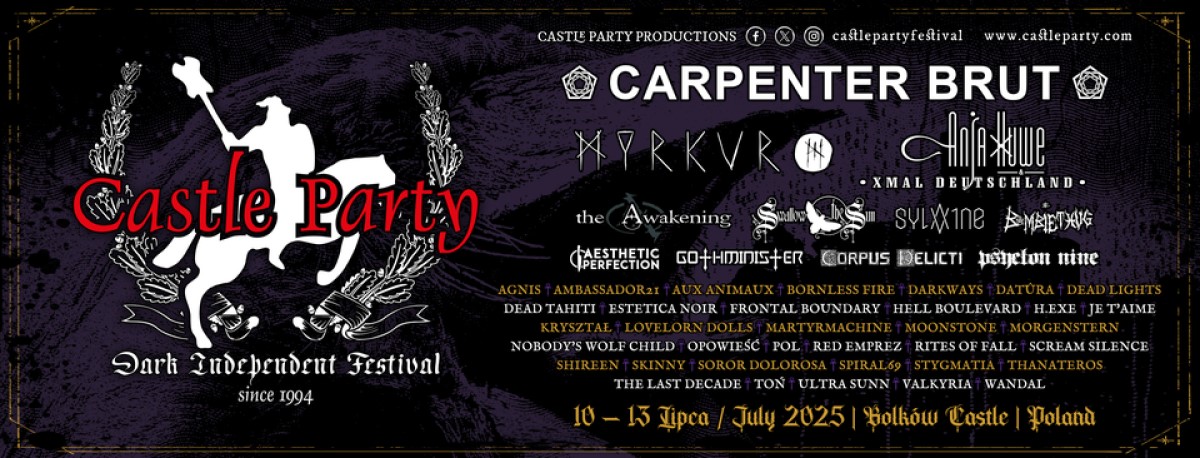The legendary Irish pagan metal band Primordial hails from Skerries, County Dublin, and has been enthralling us since 1991 when bassist Pól MacAmhlaigh and guitarist Ciarán MacUiliam formed it. Joined by charismatic vocalist Alan "Nemtheanga" Averill and Derek "D." MacAmlaigh on drums, the band released its debut demo, Dark Romanticism... Sorrow's Bitter Harvest..., that same year. The first full-length Imrama followed in 1995 via Cacophonous Records. Influenced by Bathory, Celtic Frost and the emerging Greek and Norwegian black metal scenes, the band in the coming years released nine more albums, of which The Gathering Wilderness (2005) and To The Nameless Dead (2007) are considered true monuments of pagan/Celtic/black metal. In September 2023, Primordial released its tenth studio album, How It Ends, via Metal Blade Records. The band incorporates a wide array of influences and styles, blended into a unique Primordial style. Its live acts tend to be impressive also, so no wonder we see Primordial playing a lot at metal festivals all over the world. We got together with Alan at the Tolminator Festival in Tolmin (Slovenia) and had a nice chat and quite some laughs. While we can't promise you the same fun just by reading the interview, we still suggest you read it.
Interview with: Alan "Nemtheanga" Averill
Conducted by: Tomaz, Jerneja
Edited by: Jerneja
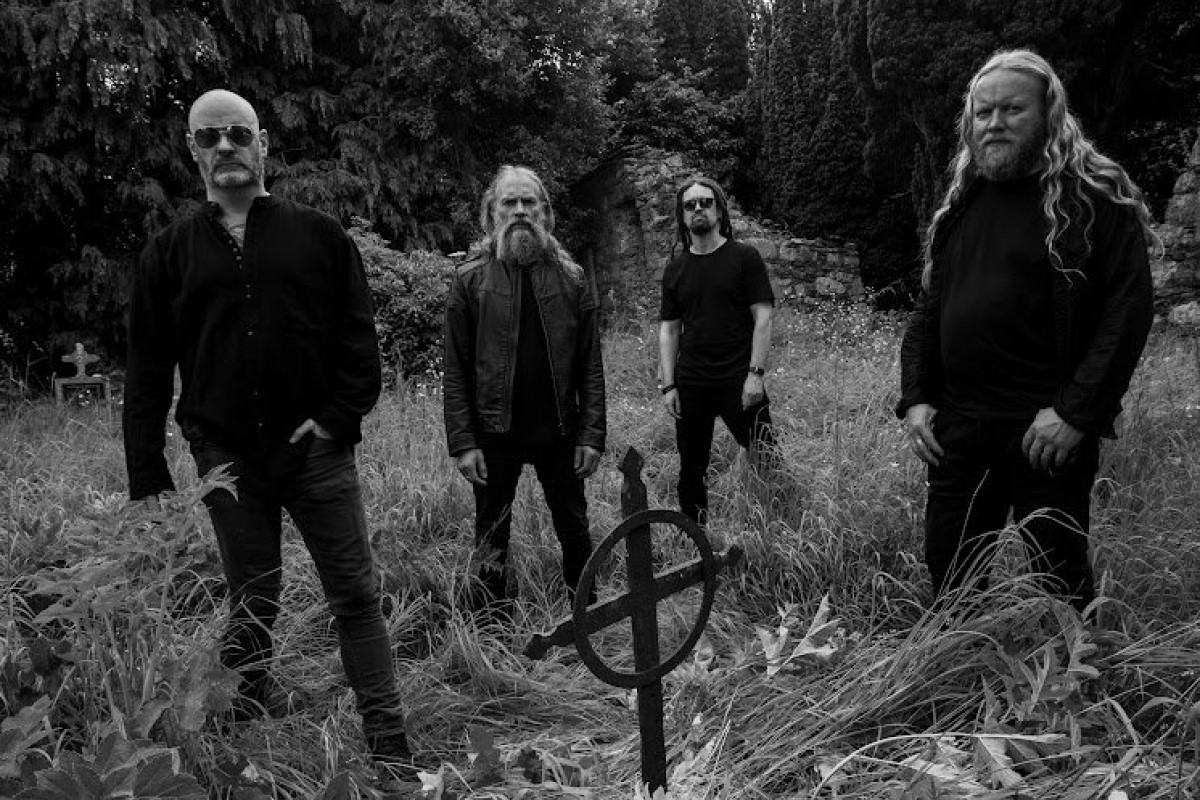
Jerneja: Hello Alan, nice to meet you for the third time. If you remember, we met for an interview in 2013 and 2018, and always at this venue... So, it's been about a year since Primordial released its latest album, How It Ends, and I wonder "how it ended" with it ;)?
Alan: Well, it came out in September last year, and I'm very satisfied with how the album turned out. I think it sounds like we wanted it to sound, and even though it's already our tenth album, it's vital, full of energy and passion. I don't think that people who like Primordial are at least not disappointed with it; that's what I feel. I think that it's an angry and defined heavy metal record at a time when heavy metal needs it. That is the positive side. The negative side is that it feels like the album came and went very quickly. Sometimes, in a band, you feel like you can play for an amount of years. You see small little increases in popularity, and we have reached the place where we are. I don't see any growth or movement. The band is now like a legacy band, like an old band. It's a moment when you have to realize that you ceased to be music for young people or that you are young. So, we had to cross the Rubicon into middle age, which is an interesting place to be. But you know me... It's complicated. I love the record. I think it's great, it has great songs. I feel that it has my best singing, but on the other side, we are where we are. It is where the band is, and it's OK.
Jerneja: It's been five years between Primordial's last two albums, and I was surprised you released it just like that - well, quickly. Namely, you only released two singles beforehand, and there was no big promotion either.
Alan: There were three singles, actually. What happened is that we don't count Covid or lockdown. That doesn't count for us. We agreed to do nothing creatively, didn't rehearse, write songs, trade files - just nothing. We didn't really speak to each other for two and a half years. Then we started to make a new record. To me, it doesn't feel like there were five years between the two albums; it feels like two and a half. It depends on how you look at it. The album was made very quickly. We got into the rehearsal room and needed six or seven months for the album to finish. The songs came very quickly. We are not a band that fucks around, we don't trade stuff, we don't labour very intensively about things. We made stuff spontaneous, OK, it's calculated, but it's spontaneous. We trust our instincts and what feels like the structure of the song. We are not obsessed with the thing - if something is or isn't. Once you are in a mood, and the atmosphere and everything is moving, I can do one song each day if I feel concentrated. We don't do much work, but when we do work, we do it a lot very quickly.
Tomaz: It's almost strange that you were not musically creative during COVID-19. Many bands and artists claim that this was their most creative time...
Alan: I hated it too much. I could never be creative. It was more likely that I was going to kill somebody than make more music, haha. To be honest - I couldn't concentrate enough to be creative. We dealt with it in various ways. Different stuff happened to different people in the band. Some tragic stuff, some family stuff, some other stuff, and we said that when this bullshit ended, we'd gather and figure out what we were going to do. I don't trade files, and I don't sit behind the computer making music. It is not why I started to make heavy metal. Let's say that if the lockdown never ended, I'd never make any new heavy metal album. That will be it. I had more important stuff to look after and not to sit and write riffs. That's not for me, and I just said that I wouldn't do anything in that regard. We all agreed since we don't send any e-mails about music but have to be in a room together. You just had to wait. Yeah, that's my attitude. Also, who the fuck needs my solo acoustic album? OK, there's that ambient/electronic album I made with my cousin. I'm also trying to say that a lot of people used lockdown to make way too much music, and now we have all those shitty albums.
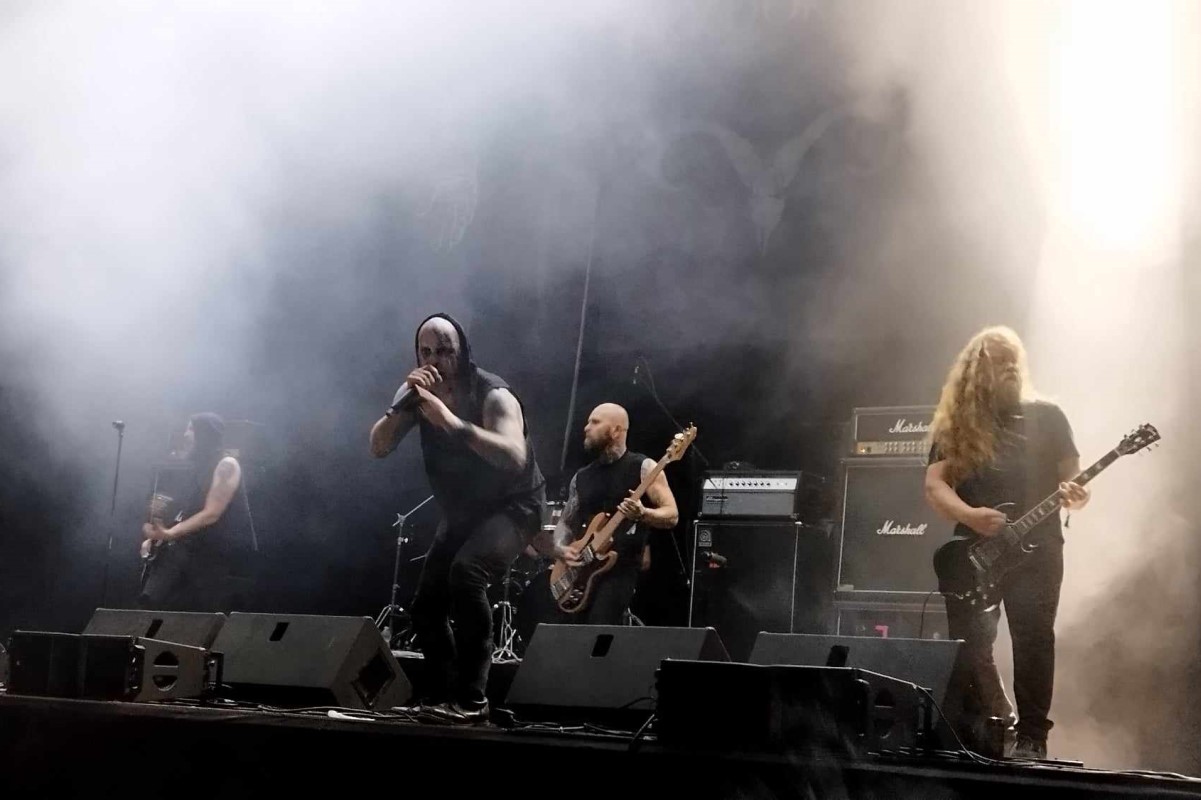
Tomaz: You're right, and, just for example, Terra Relicta is still receiving promotional albums made during the time of COVID-19. But let's go back to your latest album, How It Ends. It has a powerful title, and I wonder how much it relates to the things going on in the world.
Alan: Yeah, I mean, it's everything. It has this cryptic title on purpose, to maybe refer to the end of the band. Not really, but who knows when it ends. I did that on purpose. I think that the real meaning is about how I look at what's happening in the world. The end of language, society, mythology, history, OK, not about history, because history never ends, but more like an end of a certain moment in a process of human history, where we look at the movement of western civilization post-second world war, up to the fall of Berlin wall, let's say the early 1990s,... we are entering this other phase of humanity. What I'm wondering about is if we are granting systems of technocratic institutional oppression and the ability to rank and file us and move us towards an authoritarian future. Maybe, or maybe not. It's also a relationship to that relationship to historical moments when the same things happened. I'm sort of asking questions - where are the heroes? Where's the defiance? Where are the people who oppose this? Where's the fighting spirit? It seems that it's autoreplicated in most people. It's because many people don't understand the parameters anymore, amongst many other things. So, it's me asking the question: Is this how it ends? I'm not telling people about how it ends - more like questioning if this is how it ends. It's a question - is this how you go down? Without a fight? Not all the songs on the album are about that; some are strange, pagan-feeling songs.
Jerneja: Technological or other "external" progress aside, humanity seems to spin in a circle...
Alan: Ok, I mean, we have this ancestral behaviour from our hunter/gatherer past, but these things are slowly changing if you look at what AI is bringing to human society. I think that we are in an age of something that could potentially destroy humanity or society - just like it happened many times. Do you know about this "black ball theory"? It's if you take a bag with nine white balls and a black one. Every white ball represents a progression in human civilization, but the black ball is the last to be pulled out, and, for example, the AI is the black ball. We are developing technology that can outstrip us as human beings, or maybe not. One of the things that I've learned is to hold the conflicting points of view rationally at the same time and observe that cognitive dissonance. Like observing Dublin - which seems very peaceful today - but then understanding that somewhere else in this world is a bombing of civilians happening. You need to hold up to these two concepts at the same time and realize not to worry to observe these changes in humankind. I have space and time to do that as a musician. That's what Primordial is. If it's not your place to contemplate these things, maybe the world and life are easier because you don't think about all this dark worldview stuff. You can become caught underneath the wheels of this dark worldview. So, I think that the new Primordial album is trying to ask a question to the people; it's trying to be defined instead of being introspective as it was Exile Amongst The Ruins. It's also very dark but in a different way. Exile Amongst The Ruins dealt more with an inner landscape of difficulty, while the new one is much more defined; it's more heavy metal. I'm saying we lost a war, yet we are not going down without a fight, but who is with me? Anyone? And so, for the tenth album, I made a defined statement.
Tomaz: It's the same thing as you are always asking the audience on your shows, "Are you with me?". What exactly do you want to achieve with this phrase? Is this just because of the show?
Alan: If you look at the original concept of black metal second wave, they wanted to be alienated from the crowd yet in front of the crowd. It's a contradiction. Why not ask everyone who's there to be with you against everything that is outside, as opposed to being against the crowd? Now, OK, here and there, you have to be against someone or something in the crowd, but all I want to do is to step on board and be with you - trust me on this hour and a half. Trust me, I will speak for you and give it back to me. It is the way that art should be, not entertainment but art. Art should move you - intellectually, emotionally, and these kinds of things. You know, nobody in the crowd should feel different to me in a way. When I sing "The Coffin Ships", which is about this tragic moment in our history, it's also meant for you to find out your own history, about your country, your town or your family. You should take the power from this sorrow, sadness, or whatever, and don't feel that there's a big difference between Primordial and you in the crowd. Primordial has always been inclusive in that sense, in the old-fashioned meaning of the word. I mean, no one in the crowd should feel alienated from what we sing about. The image of black metal, and in its essence, is that you should be closed inside four walls against everything. In that regard, Primordial is kind of liberating. It shouldn't feel oppressive. A big theme of the How It Ends album is the concept of liberation, a concept of freedom, and what that means to us. Once, I was having an argument with my friend Joe from Gama Bomb, and he said that the most important English word is "love". I replied, "No man, you can love evil, but liberty is the most important word of English language. To be free, the desire to be free, that's the most important word". It is what has driven every oppressed group throughout history, and keeping people oppressed is a move of everyone on "the other side of the fence". The empire, the colony, the elite. So, the new Primordial album is more like a downtroated album; it's almost a working-class sort of thing. I'm not going to say that it's punk, but it shares some views about those things, together with Irish traditional music and Irish working-class people who were genuinely rebels. I'm asking, who is a rebel now? Heavy metal seems to be so very self-conformist now.
Tomaz: Well, it seems nowadays rebels sit behind computers or on their mobile phones typing comments on Facebook...
Alan: OK, yeah, but what I want to say is that when you play a live gig, it should be a real communal feeling of artistic or emotional spiritual intensity. So, a commune should not alienate people in the crowd. So, if you've never heard Primordial, it is time to go and listen to "The Coffin Ships", and you'll hear sadness and sorrow. It should move you on an atavistic level. It should; sometimes it doesn't, sometimes it fails, but it should. You don't have to understand English to hear all that heavy shit. That's the beauty of those things that you're trying to transgress. You are trying to transgress cynicism, the tiredness of the modern world, the tiredness of Western society, or whatever, in your own small little way. That's how I look at it.
Tomaz: In my opinion, How It Ends is, at its core, similar to your most praised album, To The Nameless Dead, isn't it? Even though To The Nameless Dead has more historical themes...
Alan: Well, maybe, they are both defined, and they are both much more heavy metal. Exile Amongst The Ruins was a little bit darker and experimental, and so was A Journey's End. They both deal with inner conflicts. How It Ends is more like for everybody. In a sense, it's more communal; we wanted to make it more aggressive, angry and straight to the point. In a way, it's similar to To The Nameless Dead, a record that most people say it's their favourite. It certainly is our "big" one. And if the new album echoes that, I see no problem. I have no interest in being original. Primordial is what it is, and still, nobody sounds like us. If you are trading the same paths as on your records before, it doesn't bother me at all. If I go back to what I said in the beginning, I'm growing old, and to be 30 or to be 50 are two different things. So, when I wrote To The Nameless Dead in 2007, I was in my early thirties, and now I'm nearing 50. Can I still summon the fire, energy, anger, aggression, and all those things 20 years later? That's the test.
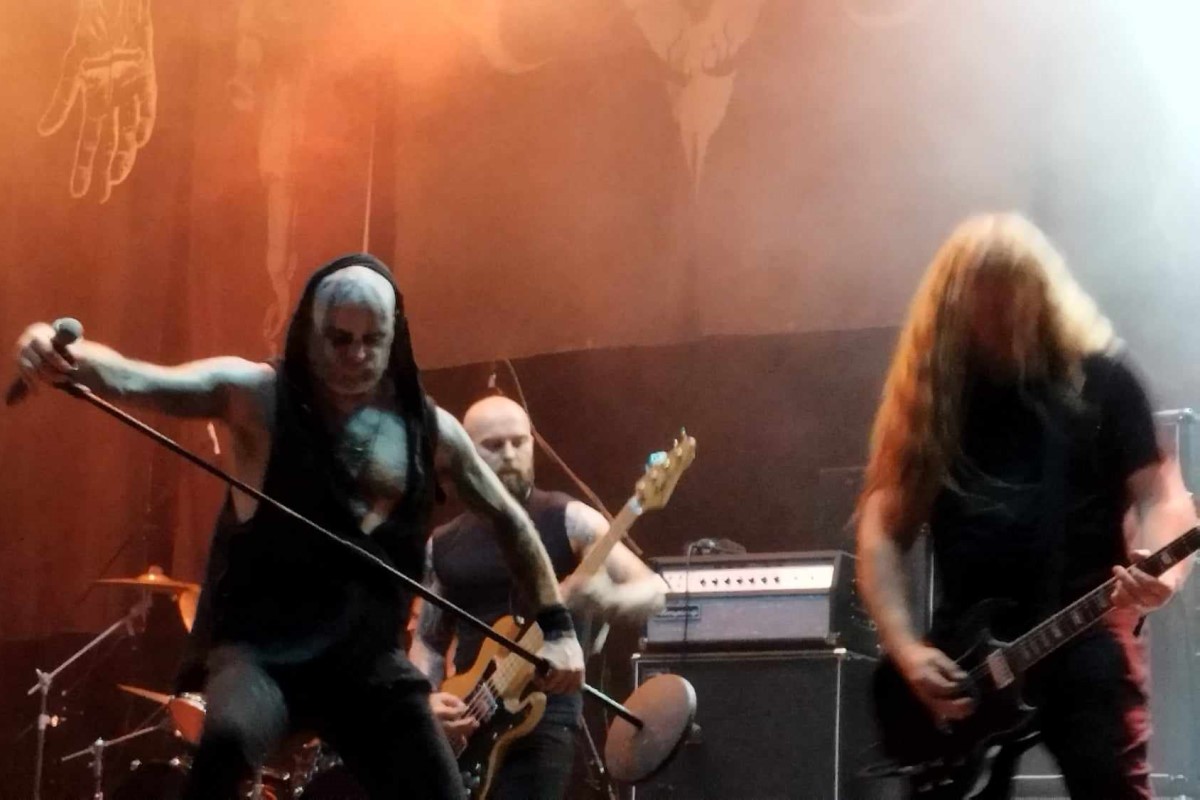
Tomaz: Nowadays, musicians in their thirties are considered young, but when I started listening to metal, there weren't many older than 25... There aren't many bands with young musicians these days...
Alan: I still meet people who are 18, 70 and even 90 years old and playing. We just did a tour with Archgoat from Finland. The two brothers, they are awesome guys and they are 51 or 52 years old... Kai from Archgoat said to me: "(speaking with Finnish accent) Oh, you know Alan, I think that black metal should be played by us, the older people. We must show that you need experience, you need to have weight and gravity". Haha, and I was like: "Yeah, maybe so. You have a very good attitude about this all but I don't care about getting old". You know, I don't want Primordial to be the band of which people say that it is good now but you should have seen it 20 years ago. In the end that happens to everybody.
Tomaz: Since you mentioned black metal a few times, do you consider Primordial a black metal band?
Alan: At its core, at its heart, yes, but back in the day, in 1992/1994, I understood what I thought was orthodox black metal, satanic black metal, and I knew we were not that. So we said we are pagan black metal or we are not anything. We got put together with Enslaved and bands like this, and it's fine. Maybe it was a pagan stand on the spirit of black metal. In many ways, I'm still closest to black metal in my attitude and outlook. I don't think about Primordial as a black metal now, but I'm a black metal guy. That's my core and whatever this spiritual thing is. It's a complicated thing that seems to have many paradoxes at its heart. That's who I am, and it never changed for the last 35 years.
Jerneja: Today, we heard quite a few people mentioning that they were looking forward to your concert. Some pronounced Primordial [praɪˈmɔː.di.əl] and others [prɪˈmɔːr.di.əl]. So, how do you pronounce it?
Alan: Oh, I don't know, I don't mind. I think it's [praɪˈmɔː.di.əl]", but it can also be [prɪˈmɔːr.di.əl]. I don't know, I'm more than happy that people are looking out for the show than how they say the name. It's an unusual line-up and we have the last place. That's the deadline slot, not the headline but the deadline, haha.
Jerneja: Yesterday, Behemoth played as the last one, and it didn't feel like a deadline slot at all...
Alan: Well, every time that we played here it was great. You just have to try and be realistic, but also passionate and positive about whatever it might be. If there are fewer people then there are fewer people - nothing you can do about it. It doesn't matter.
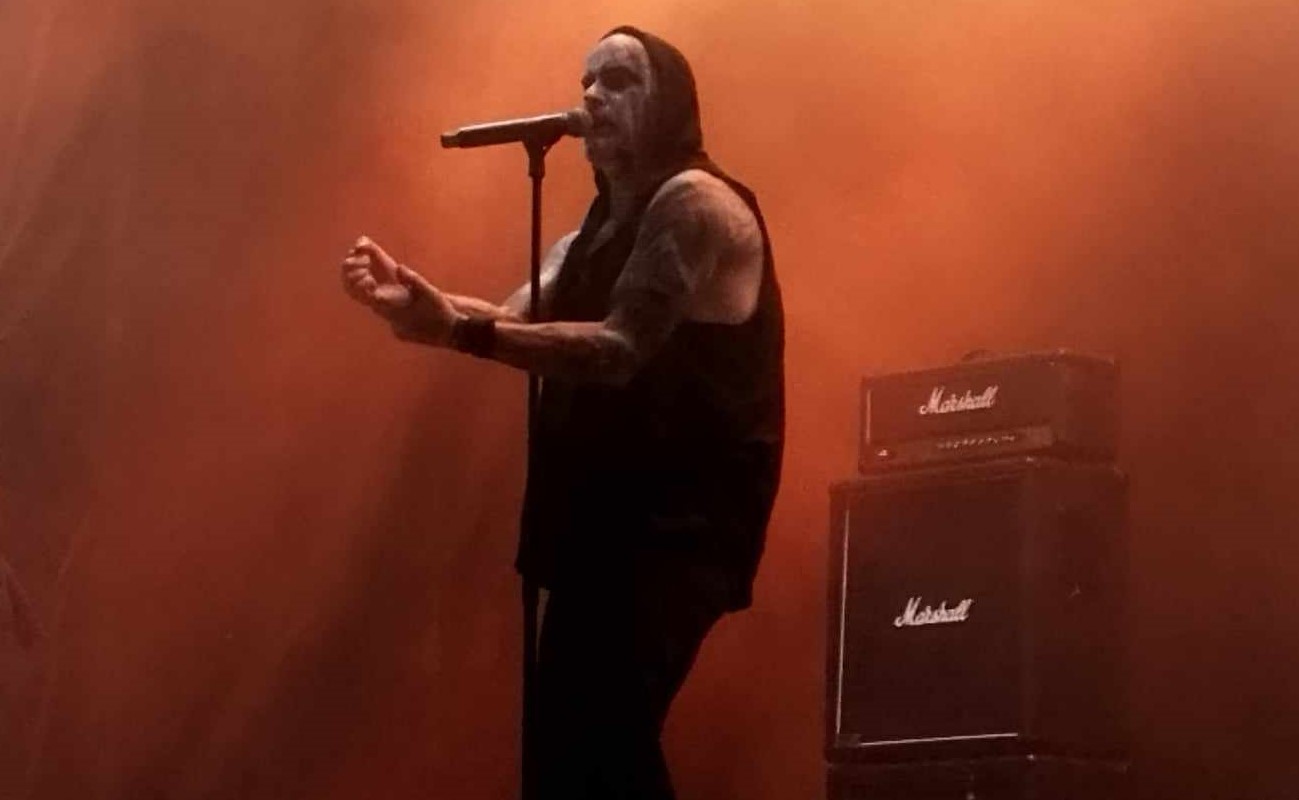
Jerneja: Since I recently wrote about you releasing a new music video and announcing festival performances, I'm wondering which festival you're most looking forward to.
Alan: I like them all. I even like the commercial ones, such as Grasspop and Wacken. We had great shows there but I still prefer shows with 500 - 1000 people, where maybe we play with and meet some friends there. This one, Tolminator, is very cool for example. You get soaked in the atmosphere and it's not overcrowded. I don't like huge crowds anymore but while I'm saying this I must admit that we had really great shows at Wacken. Our last show there, five years ago, was simply amazing, it was the best one of that summer. I won't criticize the big ones because I still like them. I like travelling and I like playing.
Tomaz: How does it feel to play in front of 50000 people and scream "Are you with me"?
Alan: I must say that we never played to that many people. The biggest, I think, it was 25000 or 30000. I mean, you have to be careful and clever and glad that the band was not that big when we were teenagers. Maybe it goes into your head. Being a rockstar is a very attractive thing for a young man and can be very easy to get caught up in whatever that means. It's not to say that I never did some of that but I think we should never be rockstars, you know, we are bad liars. We are too blunt and too brutal with each other, and if someone in Primordial would have acted weird, we would be the first people to tell him not to behave like that. So, Primordial does not allow each other to behave badly. We are always very polite.
Jerneja: And how different was your younger self?
Alan: There were times when I was drinking, fighting, fucking and whatever. I was blunt and brutal, just as a young man should be, but at the same time, I was always quite polite and respectful. It might sound ridiculous, but you just have to enjoy the ride. The older I get the more I enjoy everything else, and I don't do all the crazy shit like I did 15 years ago. I like to go outside and just enjoy the atmosphere and circumstance, like, you know, I can die tomorrow. I can be hit by lightning while I'm on stage, that would be my last song, and if I die that way I would have to say that I had a pretty good run. I think that you need to be part intellectual, part poet, part fighter,... just never be tired and bored. Never be that person, apathy is a thief of joy. I'm trying not to be tired and pissed off. The thing is to give a fuck to the things that you should do and don't care about anything you shouldn't. You need to learn where the line is. We have been playing together for 35 years and we still make each other laugh, it's still funny and we are still friends, but the day will come when we'll draw the curtain on everything.
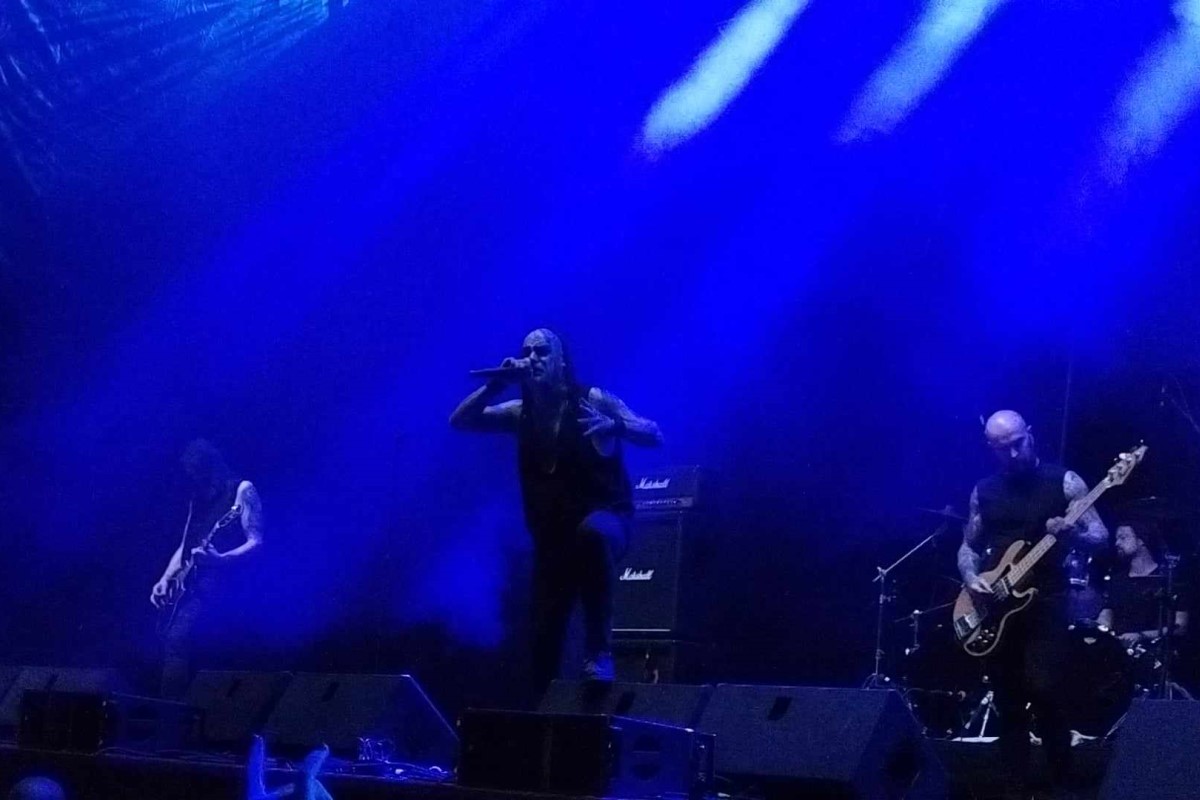
Tomaz: How is playing in a band with the same people for so many years? It sure is a rarity.
Alan: We are very different. No one is an asshole and no one acts like a rockstar. Here and there somebody can be a pain in the ass, of course. You know, Primordial is five dudes who came from a working-class of North County Dublin. We came together at the end of the 80s or early 90s and wanted to get away from that difficult and violent city where we lived. We just made a band, anybody could do it. We had a very down-to-earth attitude. We were not just trying to deal with that shitty place, we were not, Dublin had charm but it was very violent, quite aggressive, and there was a lot of unemployment. So we just made a band to fucking deal somehow with all that shit. We dealt with it and it was fine.
Jerneja: The three of you were there from the beginning, and the drummer only a little less...
Alan: Yeah, the main three. We changed the drummer in 1996 and Michael, the other guitar player, left one or two years ago. He was there for 21 years and started to get burned out with airports and such stuff. We have a guy who has been helping us out for 25 years. So, tonight we have a different bass player because Pól has an injury on his shoulder and can't play. There's nobody in charge of the band. If you want to stand up and change the song structure, or write different things, you can do it. There's almost no ego stuff and we are still friends. We like hanging out, although we never socialise at home, and we are not going out drinking together. So, when the things with the band are over we just split. We are then happy to see each other and we have fun. We've met some other bands where this guy hates that guy but he won't say it because that guy hates her who hates this girl. That's bullshit and we had nothing like that. We had fistfights, haha, but the next morning we shook hands and said sorry to each other. That's how it's done in Ireland. No regrets, no bullshit, we don't harbour, there's no grudge. But it happens often with other bands, especially when you start drinking with them. They go like, "look at him, that fucking guy, I fucking hate him..." Really? You should tell him! We tell each other, and we sort it out right away. It wouldn't be Irish if we didn't do that, haha.
Jerneja: I think this is good, although not very practised. People like to say that they want you to speak your mind. But when you do, it usually doesn't go over well.
Alan: The Irish way - it sounds like a cliche - is to speak your mind and apologize when you fuck things up. To take your own shit on your own fuck ups. When I was drinking a lot, and also taking drugs, I was fighting a lot, but you go through your movement, and I changed in that regard. I had a few years when I was doing some serious rock'n'roll stuff. It was fun but let's not think about it too hard and let's not have too many regrets. But yeah, we met many bands who seemed to hate each other after three drinks, haha. We are not that band, we don't hate each other. Irish people don't tolerate bullshit, there's no drama. We like to drink, fight and fuck things up, but the next morning is "sorry man" and we shake hands.
Jerneja: I heard that Irish people are associated with heavy drinking. There's even a joke like: "What's the difference between an Irish wedding and an Irish funeral? There is one less drunk at a funeral..."
Alan: Haha, nothing, actually; in reality, we are pretty much more drunk at the funeral, haha. Cliches are cliches. They are what they are and the truth is that Irish people like to drink a lot. People from many other countries only think that they drink but only until they get weird. The only people that I've ever seen drink like us are Russians. This is insane. I've been to Russia three times and it's wild, but this is destructive nihilistic dark drinking. It's not social, but I get it, and, if you've ever been in a town outside Moscow, for example in Novgorod, it's fucking dark, man. I can understand why they drink so much in those places. Finns also drink a lot, but they drink to destruction. Irish people don't do that. Irish people drink a lot, but it's a different kind of heavy drinking, and yes, it's not only a stereotype. You know, every rebellion that was ever formed in Ireland, was brought up in a pub. That's where people do their business, where great poets, great writers and even great music were born. People had nothing else. That's why people drink.
Jerneja: Are there many cases of liver failure in Ireland?
Alan: If we have many liver problems, haha. I need to google it, haha. The truth is that the Irish don't look well after themselves, right, but that's another conversation.
Tomaz: One of the cliches about us Slovenians is that a Slovenian is happiest when their neighbour's cow dies.
Alan: Oh, really, haha, are you fucked up also. You know, cliches are cliches and they are here for a reason. Ok, Irish society did change a bit but it's still based on alcohol.
Tomaz: Ok, let's go back to the music...
Alan: Oh, why should we talk about the fucking music, we talked about liver failure, and I'd rather talk about liver failure than music, haha...
Tomaz: I recently took a closer look at your album covers, and they seem to have a common thread.
Alan: Yeah, but the old shit. Listen, I'll tell you about How It Ends. We were making the album in a studio we hired in the middle of nowhere, and we went into this tiny pub in the middle of nowhere. There was this poster which is the guy with a gun in his hand. Originally in his hand was a sheet of weed. It was a farmer's poster from 1922. I said that this is the fucking cover and I took a photo of it. Then my friend put a gun instead of a sheet of weed and that was the picture. It's a 100-year-old propaganda poster for Irish farming, and we just put the gun there. When we do an album, I make around ten covers, knowing that Ciáran will not like any of them. As soon as we started making the album, I started making the covers. In the end, the one he liked, was the one I made. Everyone has a choice, pick the one and I'll start to work on the rest.
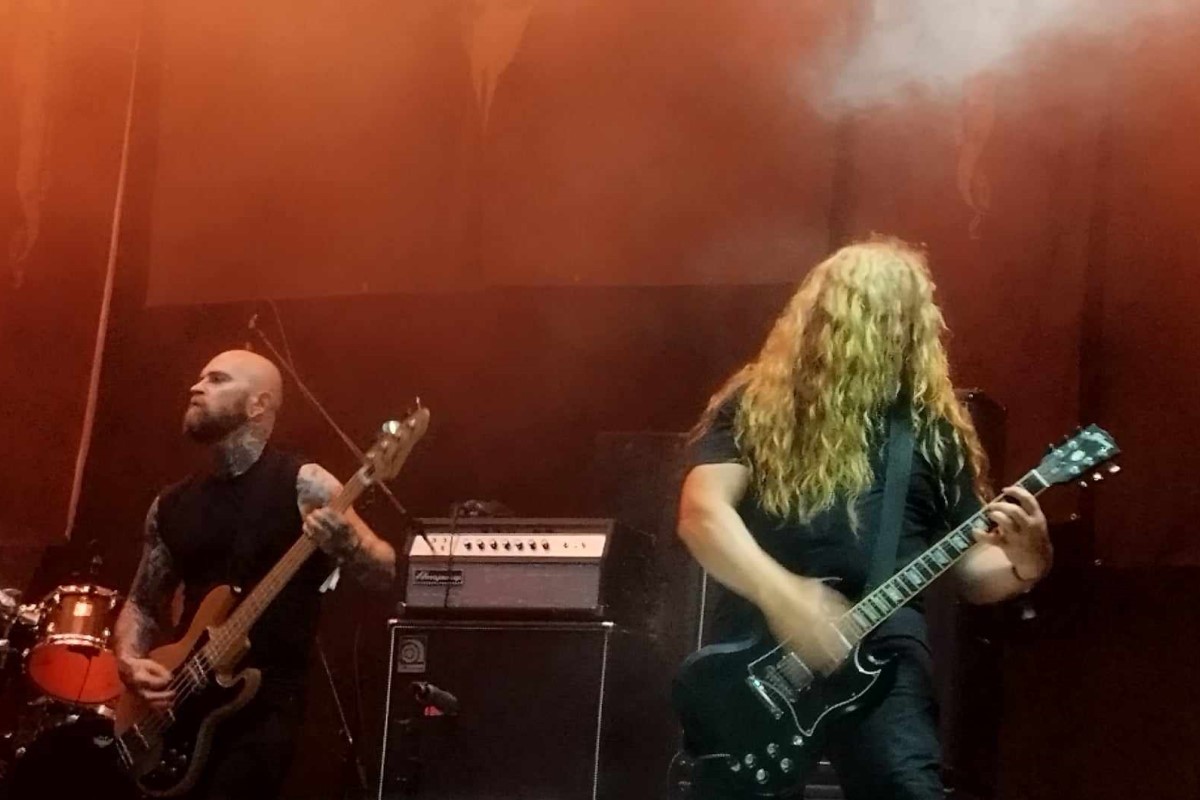
Tomaz: I must say that I like the cover art for To The Nameless Dead the most... It's not anything special but it is powerful and symbolistic, especially because the flag is lowered down...
Alan: It's interesting that there are eight other versions of that. I was making eight of them at the same time, and you know, it has to breed into one. It's a female statue lowering the flag. That's what I do, and there's one member of the band who objects to everything. So, I need to make eight or ten versions of that just that Ciáran, in the end, says, "that one". If I just make one and he doesn't like it, then where are we? That's how Primordial is, and that's OK.
Jerneja: You haven't done many, if any, covers, though... It occurred to me that the Irish ballad "The Wind That Shakes The Barley" could turn out great in the Primordial's version. What do you think?
Alan: There's a record called One And All, Together, For Home. It's a compilation record with Drudkh, Kampfar, Winterfylleth,... - only pagan metal bands doing folk music. We have two songs on this compilation, "The Foggy Dew" and "Dark Horse On The Wind". It's a double album which was released by Season Of Mist, and it's a beautiful thing. We have thought about this; you are right, but "The Wind That Shakes The Barley" is hard to sing, that's for sure. Sinead O'Connor did a beautiful version of it.
Tomaz: What about your other bands and projects, Dread Sovereign, Aprilmen, Twilight Of The Gods, and others? Is there anything new in the making?
Alan: The best one that I need to recommend right now is Verminous Serpent. I made an album during the lockdown with two of my friends. The album came out through the German label Amor Fati. It's a super brutal, violent black metal, a really extreme blasphemy.
Tomaz: So you were doing music during the lockdown after all...
Alan: Well, ah no, this is different; we went in secret to rehearse, and that's not Primordial, anyway. It's Verminous Serpent, a completely other thing. Aprilmen, hm, I doubt it; Twilight Of The Gods, I also doubt it - we talked about the second album, but to pin down Rune Eriksen is very hard. Not many people liked that album, and sometimes you need to leave certain things where they should be. On the other hand, with Dread Sovereign, we will make another album.
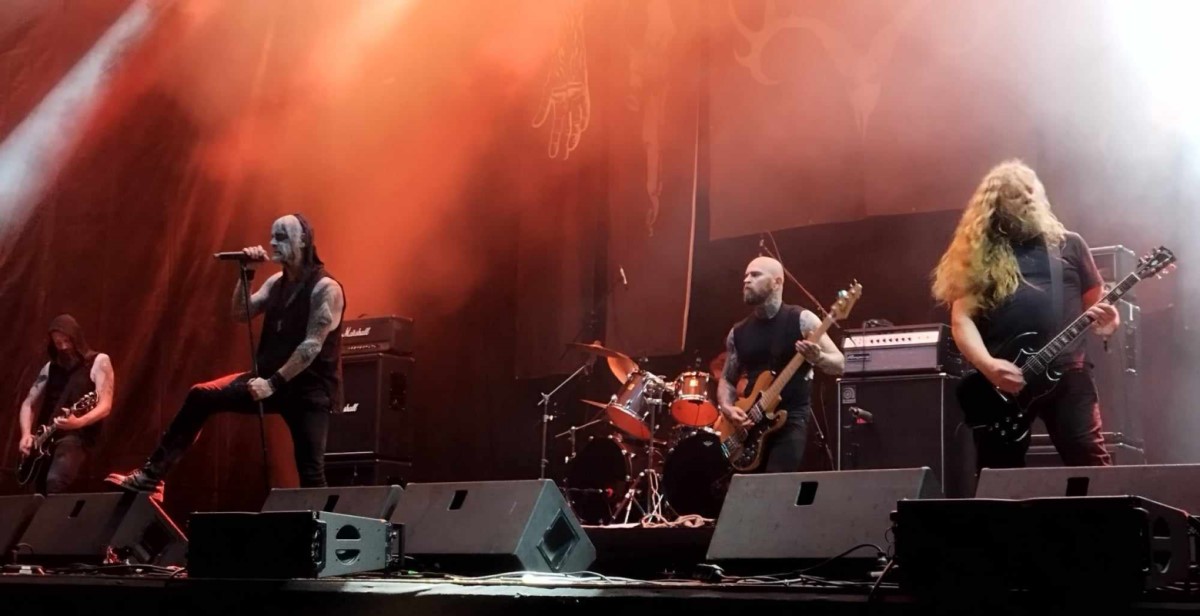
Tomaz: I'm sorry to hear that you won't be continuing with Aprilmen. It was a great project for my taste, very different from anything else you've ever done.
Alan: That's a long story, but yeah, maybe someday I'll figure it out, but for now, you just need to enjoy it for what it was. I would like to make some more music like that, but we'll see. It's complicated.
Tomaz: Before we finish, one possibly odd question. We're all getting older, and the bands we loved when we were young are getting older; some musicians have passed away... I'm wondering, out of all these bands/musicians, who do you miss the most?
Alan: I probably should say Bathory and such stuff, but I'll tell you a story. When I was a kid, my favourite band was UFO. They played in Ireland back in the day. I guess it was in 2004 or 2005 when they played in Dublin, and I got to DJ afterwards. When I was a kid, Pete Way of UFO was my fucking hero, something like pre-Steve Harris, who took a lot of things from him. OK, I was about to DJ after the UFO concert and had all the UFO records with me. I saw Pete Way and went after him. There was Pete, the singer Phil Mogg, who, together with Bon Scott, were back in the 70s proper junkies. Phil Mogg came out with a fur coat, stage clothes, a huge bouncer, and a tiny Asian woman. I called him and finally reached him. He was so high that he couldn't even talk. He barely said some things, slowly leaning to my shoulders and back, but he somehow managed to write something on my vinyl... end of story. I was like, "Jesus Christ, is this what rock'n'roll does to people?". Well, I met my hero and saw what this kind of life does to you. OK, what's the message of this story... Kids, don't do heroin and similar drugs.
Live photos by Tomaz
Primordial links: Official website, Facebook, Instagram, Metal Blade Records
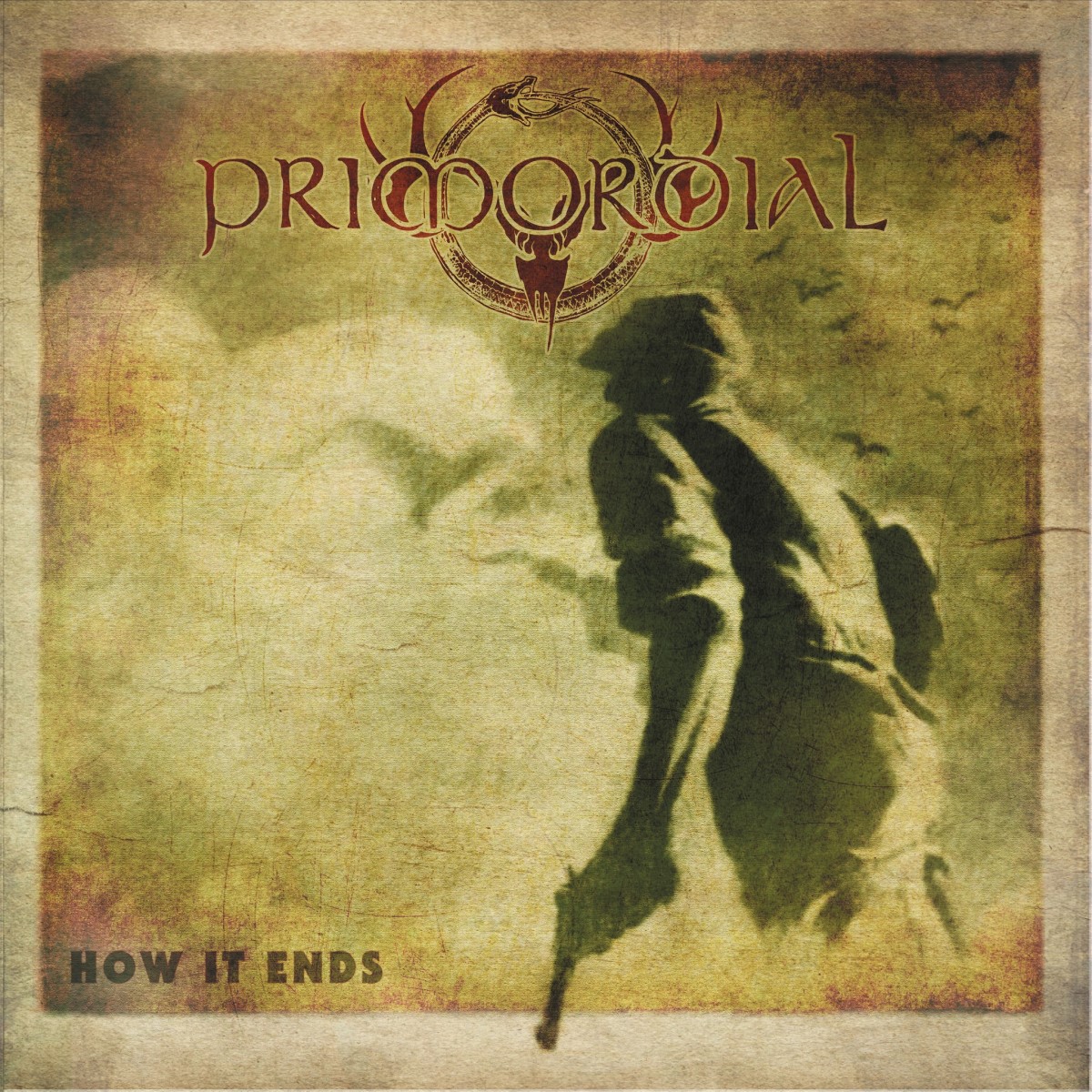


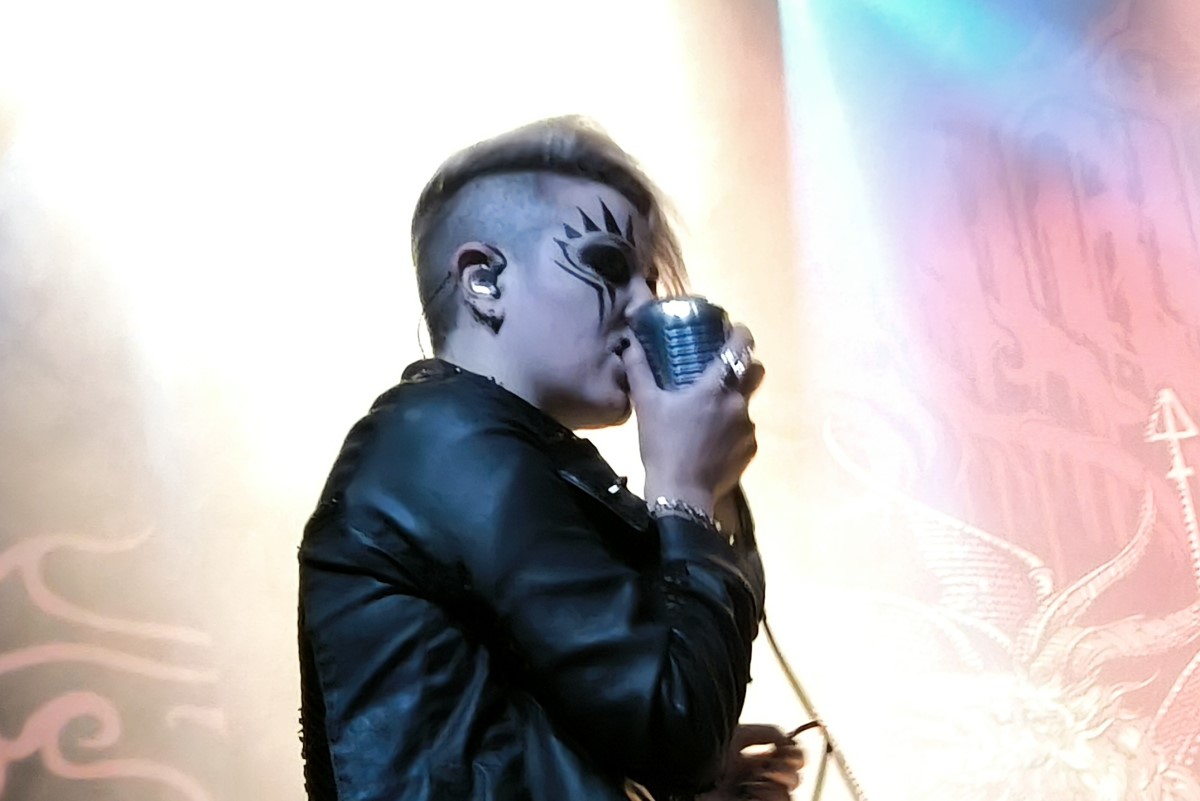 "We were kind of exploring dark subject matters and darker sounds. I really like that, and this is the direction we are going right now." - Larissa Vale
"We were kind of exploring dark subject matters and darker sounds. I really like that, and this is the direction we are going right now." - Larissa Vale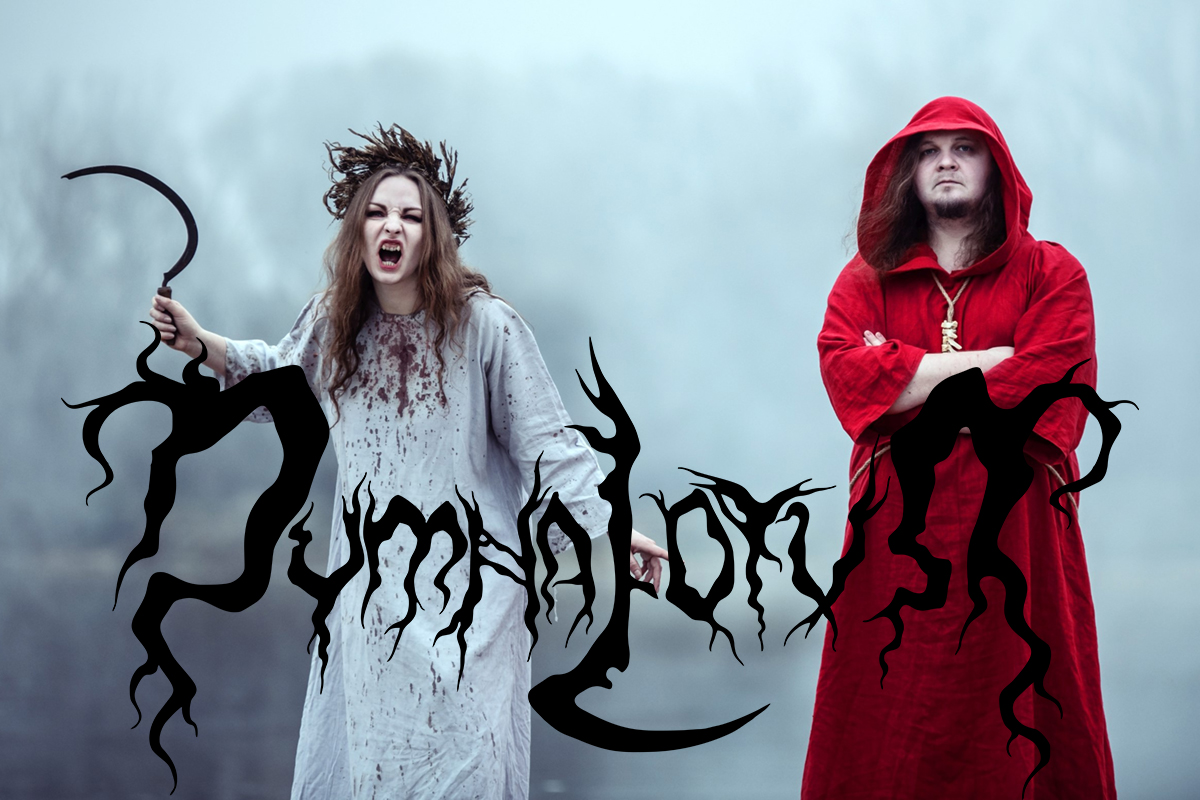 "I can call our show an emotional exhibitionism. If you want to drink beer and cry, please come to our show, haha." - Nokt Aeon
"I can call our show an emotional exhibitionism. If you want to drink beer and cry, please come to our show, haha." - Nokt Aeon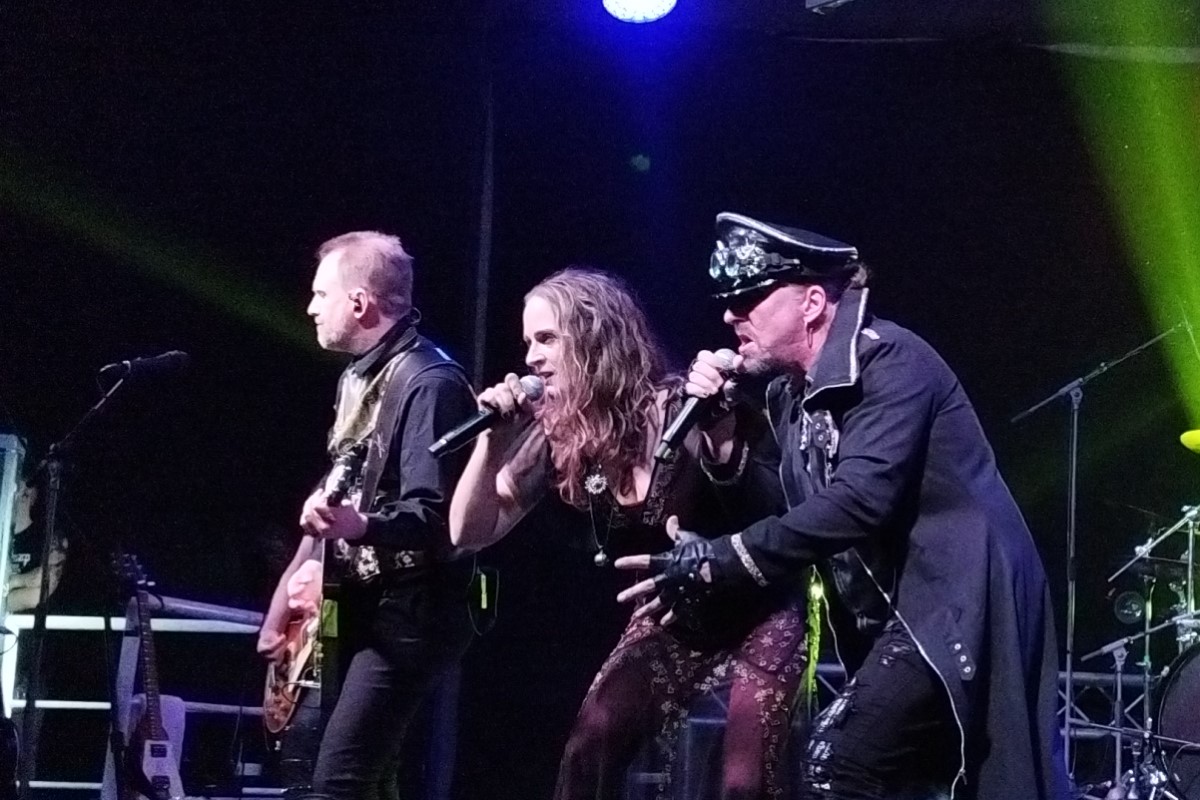 "There were already bands doing small illustrations of symphonic metal, and I was thinking, why doesn't someone do this all the time?" - Christofer Johnsson
"There were already bands doing small illustrations of symphonic metal, and I was thinking, why doesn't someone do this all the time?" - Christofer Johnsson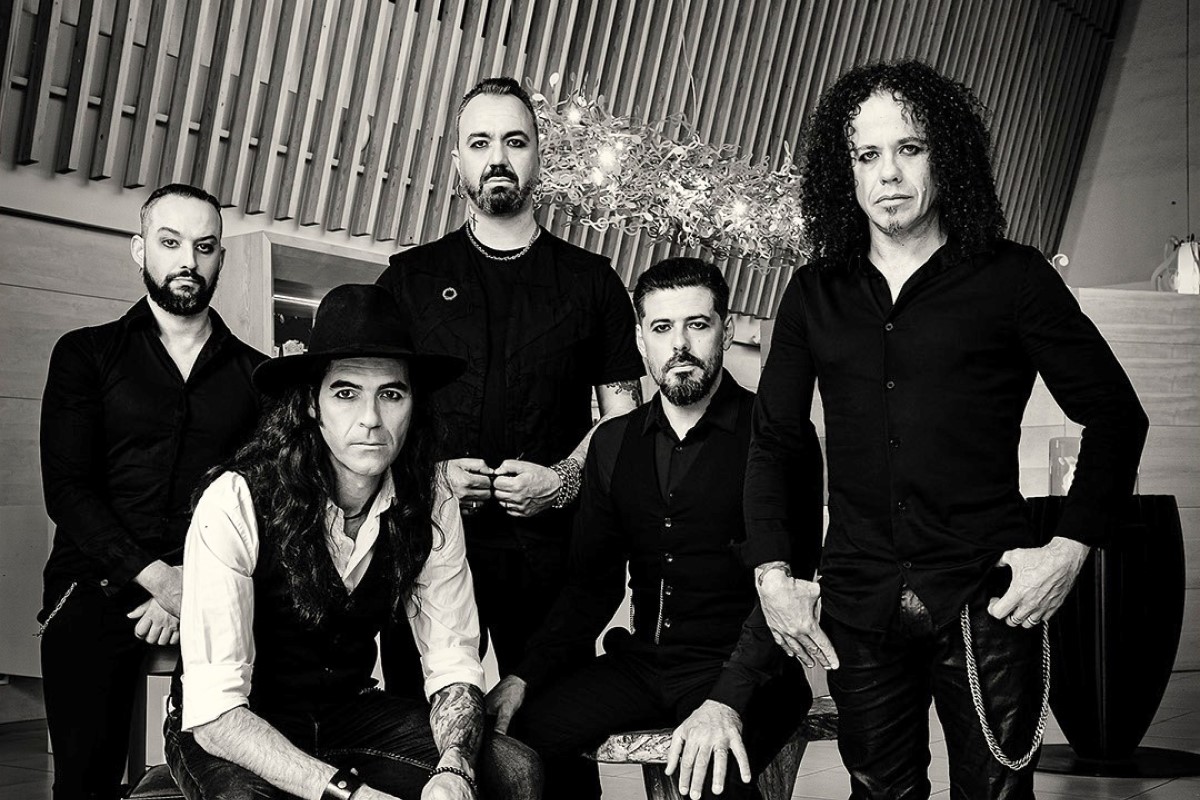 "This time we're trying not to complicate things too much. We want to have a simple message, but that doesn't mean there will be fewer arrangements or less songwriting..." - Pedro Paixão
"This time we're trying not to complicate things too much. We want to have a simple message, but that doesn't mean there will be fewer arrangements or less songwriting..." - Pedro Paixão